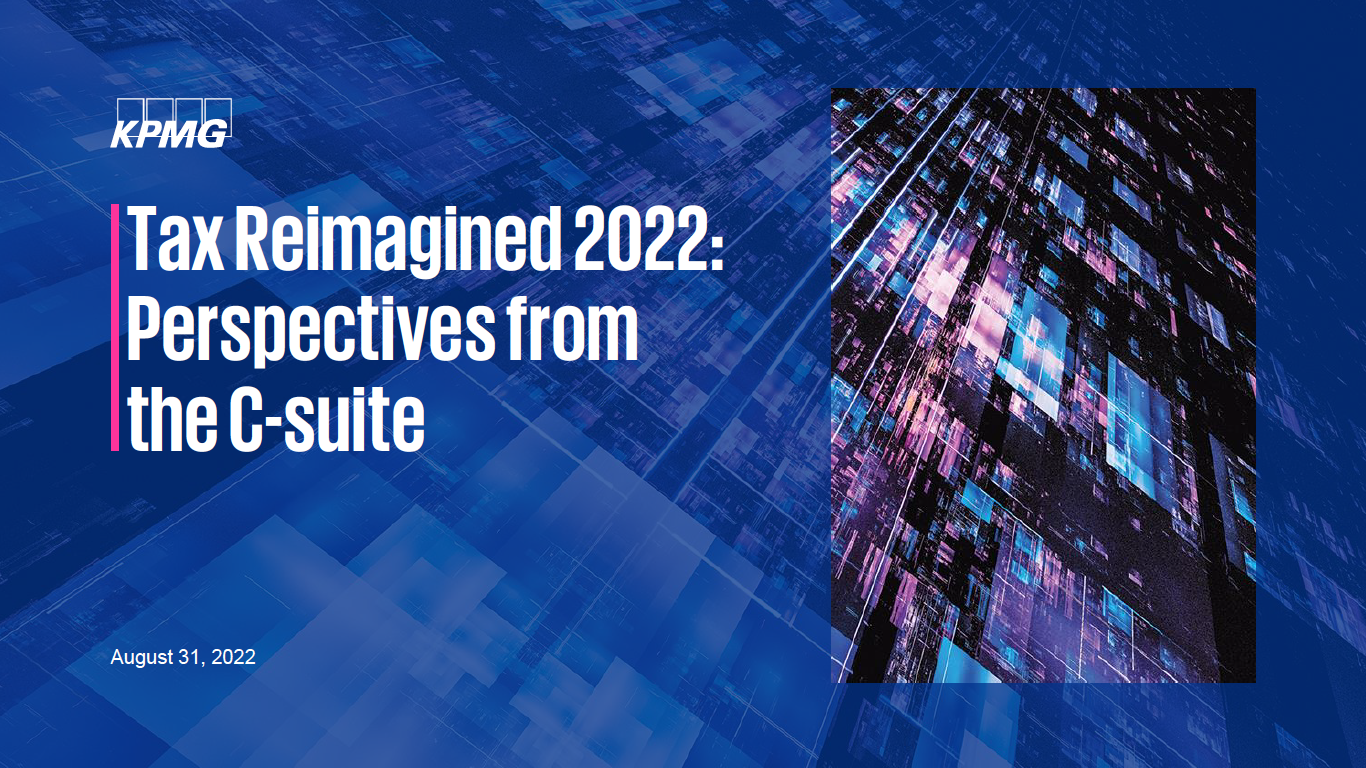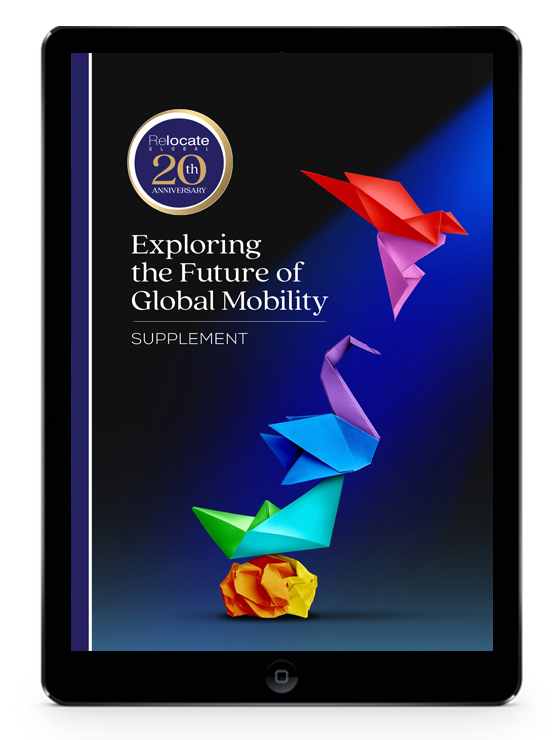Transforming tax departments through technology (and a tech savvy workforce)
A new survey from KPMG shows how tax departments could take greater advantage of emerging technology. Many have embraced policies to attract a more tech-savvy and diverse workforce, but leaders need to do more to build tech-first tax departments that deliver quality insights.
Ruth Holmes reports.
Employing global people comes with unavoidable and often-complex tax considerations. More international cross-border remote working, third-country nationals and self-managed assignees are only making this truer. This has implications for the skillset and talent pool of this vital part of the global mobility community, for companies looking to move internal tax talent and businesses operating internationally.
“Tax departments are stepping out of the past by modernising the skillsets of their talent, embracing DEI and upgrading the technology they plan to use for the future,” says Rema Serafi, KPMG’s National Managing Partner – Tax. “Those organisations that embrace this change will be the ones best positioned to compete and succeed.”
BUILDING FUTURE-READY EXPERTISE
The pandemic hastened the already significant changes to how, when and where people work across borders. Since then, a number of new global payroll and employment companies have come to the market to service these trends. Others have adapted and grown rapidly to help businesses of all sizes and sectors access global opportunities and employ people internationally. Longer established professional service companies are also moving with the times and seeking to build more agile, tech-enabled and inclusive tax departments.
KPMG’s new report, Tax Reimagined 2022: Perspectives from the C-suite, casts light on exactly where tax departments and professionals are going next to service their company’s and clients’ evolving needs. Based on the views of 300 executives in Fortune 500 companies with turnovers in excess of $1bn, the key conclusion is that tax departments are at a pivotal moment of transformation.

Mirroring trends across the wider business, leaders in taxation are embracing more inclusive recruitment and development practices (see page 32). For example, the majority of KPMG’s survey respondents (54%) are setting goals for outreach to underrepresented groups (+8 percentage points from 2021).
Over half (55%) of respondents to the KPMG survey say their organisation is recruiting from non-traditional colleges and universities (+10 percentage points from 2021). This mirrors UK news over the summer that Big Four professional service firms are dropping their demands for upper second-class and first-class degrees, broadening entry requirements and promoting other routes into the profession.
Over eight in ten (83%) are also witnessing more female candidates and hires join the profession compared with previous years. Around seven in ten (72%) are also seeing more candidates and hires from underrepresented groups. One challenge arising from this otherwise positive news is how companies can keep their staff throughout their career (see page 62). Indeed, recruitment and retention remain significant challenges this year. Around 80% of respondents agree it has been difficult to recruit (83%) and retain (79%) tax talent.
FILLING TECH SKILLS GAPS IN TAX DEPARTMENTS
The data suggests skills gaps are set to remain at least in the short-term; exacerbated by the adoption of technology, data and analytics in the tax realm. In response, more leaders are now looking to upskill existing staff (48%) than last year (36%), while fewer are seeking to outsource their taxation teams (43% compared to 65% in 2021) – training investments that could improve attraction and retention.

KPMG’s survey further highlights how employers still prefer to hire tax professionals who can learn technology rather than IT expertise who can learn tax.
Within this, most respondents are looking to boost their tax departments’ capabilities in coding (46%), as well as scaling technologies like cloud, data and analytics and visualisation (70%). Six in ten also see emergent technologies (AI, blockchain, metaverse and quantum computing) as important, alongside spreadsheets (58%).
“Data is the next chapter for the modern tax department,” said Brad Brown, Chief Technology Officer – Tax, KPMG LLP. “But until organisations realise the predictive power that tax can bring to the entire organisation and deploy a tech-first, tax-second approach to hiring talent that supports certain aspects of the tax department, they’ll continue to leave tremendous value on the table.”
The productivity and retention benefits of investing in training and technology-first approaches could be significant. Over half of those surveyed are not leveraging tax data to scenario-plan or model for tax policy changes (56%), says KPMG. While this has improved on last year (69%), the findings are less positive for using tax data to align with ESG priorities. Here 68% say they do not do this, an increase on last year (55%).
Tax departments are stepping out of the past by modernising the skillsets of their talent, embracing DEI and upgrading the technology they plan to use for the future. Those organisations that embrace this change will be the ones best positioned to compete and succeed.”
Rema Sefari KMPG’s National Managing Partner – Tax
Of pertinence to Global Mobility and its growing strategic role, over six in ten (65%) surveyed said their company did not leverage tax data to inform decision-making about mergers and acquisitions. A similar number (64%) are also yet to harness the benefits of tax data to prepare for or respond to audit enquiries, or (56%) leverage tax data for predictive modelling.
Against the background of significant tax and climate reform, ongoing negotiations to overhaul the global tax code and regulatory complexity, “it’s clear that companies are still missing opportunities to add business value,” says the report.
“The tax and regulatory landscapes are fast evolving and increasingly complex,” comments Greg Engel, Vice-Chair – Tax, KPMG LLP. “Chief Tax Officers and Chief Financial Officers, in particular, are faced with numerous pressures to remain up to speed on all the moving parts and to offer stability even during times of great uncertainty. For these reasons, it’s imperative that C-suite leaders continue to prioritise investments in talent, D&A and technology to ensure the modern tax department continues to add maximum business impact.”
Save the date
The Innovation Festival for Global Working
Join us on 8 June 2023 in Kent, UK


 Magazine
Magazine


